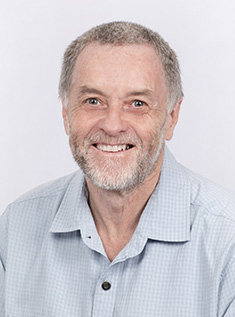It is with great sadness that we learned that Professor Douglas Paton passed away at the end of April 2023. Douglas was no stranger to these pages, having had many influential papers in the Australian Journal of Emergency Management (AJEM).
 Douglas was a Professor of Psychology, most recently with Charles Darwin University, although he also had undergraduate studies in Geology. It was combining these 2 inquiries into natural processes that lead him to be a world leader in helping us understand how we need to understand the mind as the barrier and enabler to people getting prepared for, coping with and recovering from disaster events. He was really the first person to realise that it is the human brain that gets in the way of making decisions about getting prepared, and he was able to explain it in a way that we could all understand.
Douglas was a Professor of Psychology, most recently with Charles Darwin University, although he also had undergraduate studies in Geology. It was combining these 2 inquiries into natural processes that lead him to be a world leader in helping us understand how we need to understand the mind as the barrier and enabler to people getting prepared for, coping with and recovering from disaster events. He was really the first person to realise that it is the human brain that gets in the way of making decisions about getting prepared, and he was able to explain it in a way that we could all understand.
We can't underestimate his impact and influence on how we go about the complex beasts of preparedness and resilience building. Not only in Australia, but globally. We now know, thanks to Douglas, that it is so much more than a pamphlet from someone in a uniform telling them they should get prepared.
He was widely published, with 24 books and about 200 peer-reviewed papers and chapters with over 260 collaborators from across the world. Douglas was a global technical adviser to the United Nations and the World Health Organization, working in Africa, Indonesia, Taiwan and remote indigenous communities. He was a researcher without peer, being in the Stanford University/Elsevier BV list of the top 2% of researchers cited.
He set up the Australasian Centre for Resilience Implementation for Sustainable Communities at Charles Darwin University, furthering a focus on community resilience, psychosocial resilience, and psychological empowerment, particularly in the context of drought.
He was a wonderful person who was very generous with his time to Australian Red Cross at the beginning of its preparedness journey in 2008. When doing a literature review to ensure the Red Cross preparedness approach was well grounded, I came across a paper in a 2005 AJEM, ‘When good intentions turn bad: promoting natural hazard preparedness’ (Paton, Smith & Johnston 20051). In that paper was a line about sense of community being an important predictor of preparedness behaviour. With that, the fourth step of the Red Cross Emergency Rediplan, ‘Know your Neighbours’ was born. A paper on this approach is published in this edition of the AJEM where there are many references to Douglas’s work. This paper is dedicated to his memory.
I remember the first time I met Douglas over dinner and my colleague, Jacqui Pringle, asked him ‘how long does this all take?’. In his soft Scottish brogue, in the noisy restaurant, we heard ‘18 something’ and we both thought 18 months. I think Douglas was somewhat aghast at our blasé attitude. 'Oh, 18 months, that's doable,' I flippantly said. He replied, ‘No, John, 18 years. It’s generational change we need’. It dawned on me then the complexity of the issues we face in emergency management and risk reduction sector. We have been fortunate to have Douglas and his immense intellect guiding us along the way.
To honour Douglas, and have him continue to guide our important work, his family and colleagues have established a Douglas Paton Memorial Scholarship2 at the Massey University Joint Centres for Disaster Research.
We have lost a titan. RIP Douglas.


